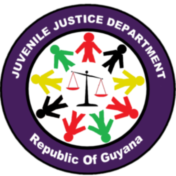PUBLICATION, RECORDS AND INFORMATION
Publication of information which may identify a juvenile as having been dealt with under the Act is prohibited unless it is in the course of administration of justice or for the purpose of the juvenile obtaining medical or similar treatment. Additionally, the court can permit such publication in the following cases:
- cases involving serious offences in which the juvenile is a danger to others and it is necessary to have the juvenile apprehended.
- where a juvenile seeks the court’s permission to publish and it is not contrary to the juvenile’s best interest or the public interest to do so.
Apart from these cases, on becoming an adult the juvenile may disclose that he or she was dealt with under the Act once he or she is no longer in custody under the Act.
Publication of the names of juveniles who are witnesses or victims under the Act is also prohibited except with the consent of the juvenile or his or her parents or with the permission of the Court.
Persons other than the juvenile and his or her counsel do not have free access to a juvenile’s records. Access is permitted to certain persons for specified purposes. The persons who may have access include:
- the Director of Public Prosecutions (DPP).
- the police.
- a court.
- parents or adults assisting the juvenile.
- the Chief Probation Officer.
- a government agent employee for statistical purposes.
There are various periods during which different types of records of a juvenile may be accessed. After these periods expire the record of a juvenile can no longer be accessed by anyone other than that juvenile or his or her counsel, unless the court so permits. The court will only grant such permission in certain circumstances, including for statistical purposes and in the interest of the administration of justice.
![]()
Disclosure of a juvenile’s record is authorized in the following cases without the need to seek the court’s permission:
- A police officer may disclose information in a juvenile’s record during an investigation of an offence or to an insurance company for the purposes of the company’s investigation of a claim.
- While prosecuting a matter the DPP may disclose information from a juvenile’s record to a co- accused of the juvenile in relation to the offence for which the record is kept. During a prosecution, the DPP may disclose information that identifies a witness in a matter as a juvenile.
- The Minister of Public Security or a police officer may disclose information in records pertaining to a juvenile for extradition purposes to the Minister of Foreign Affairs, who in turn may disclose such information to a foreign state.
- The Director of CCPA and the Chief Probation Officer may disclose information contained in a juvenile’s record for the purpose of preparation of a report required under the Act.
- Information may also be disclosed by officials to a person involved in the supervision or care of a juvenile if disclosure is necessary for that person to be able to perform their duties. Any such person to whom information is disclosed has a duty to keep it separate from other information, ensure that no other person has unauthorized access and destroy their copy after use.
Disclosure of records of juveniles in the above-stated cases is, however, not authorised after the end of the period of access specified in the Act.
During the period that records can be accessed, a court can authorise disclosure by the DPP or a police officer of any information about a juvenile in the following other cases where:
- the juvenile has been found guilty of an offence involving serious personal injury;
- the juvenile poses a risk of serious harm to persons; and
- disclosure will assist in avoiding this risk.
The juvenile must have an opportunity to be heard before the court decides whether to authorise this disclosure, unless the juvenile cannot be located. A person who is given access to a record or to whom information is disclosed is prohibited from disclosing this information to others without authority.
